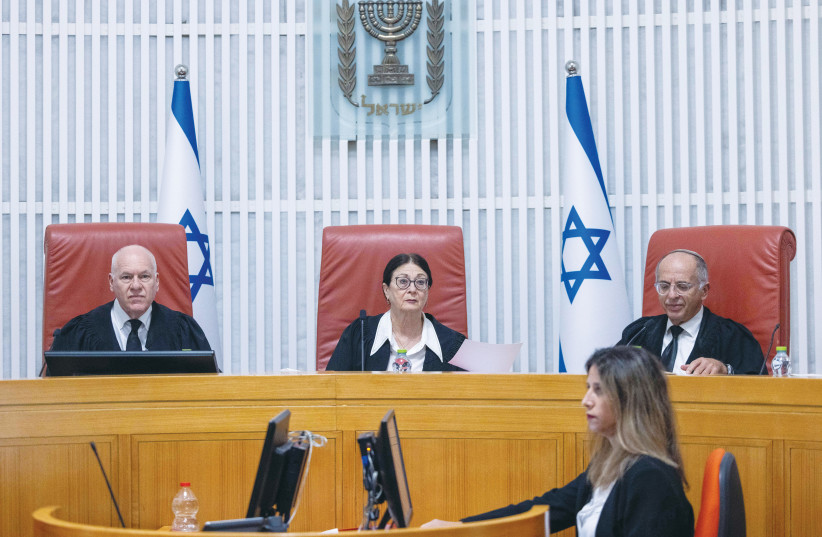A protest against the ability of the High Court of Justice to review and strike down Israel's quasi-constitutional basic laws will be held at High Court President Esther Hayut's home on Thursday night.
The protest, organized by Im Tirzu, the Movement for Governance and Democracy, Takuma 23, South Tel Aviv Liberation Front will be held at 7:30 p.m.
"Esther you're not a queen," read an event graphic. "Enough of the High Court dictatorship."
The protest is part of a "banana protest" which accuses the High Court of acting like they're part of a banana republic. The protesters will bring crates of bananas to leave at the home, following suit with the demonstrators who rallied outside Hayut's residence on Wednesday. The Wednesday demonstrators had dressed in shirts and hats that proclaimed them the court’s republican guard.
Im Tirzu activist Matan Jerafi said that they couldn't accept the High Court's striking of Basic Laws, and cited former High Court president Aharon Barak as saying that Basic Laws were of the highest significance and the court couldn’t interfere with them.

The High Court and Basic Laws
"We call on citizens to come and have their voice heard by the judges' republic president Hayut," said Jerafi.
A pro-judicial reform protest has been planned for September 7 in front of the High Court building in Jerusalem.
The High Court has never struck down basic laws or their amendments, and it is unclear if the judiciary has the power to do so. Some critics are concerned that striking down a basic law could result in a constitutional crisis, in which it is unclear which branch has authority or power over a matter.
The High Court is currently addressing two sets of petitions against two basic law amendments.
One is the incapacitation law, an amendment to Basic Law: The Government clarifies that the prime minister can only be declared unfit for service over health reasons and after a series of votes. Petitioners and the Attorney-General alleged that the law had been passed to benefit Prime Minister Benjamin Netanyahu's legal situation regarding his corruption trial conflict of interest agreement. A hearing was held last Thursday.
On Sunday the court issued a temporary order against the immediate application of the incapacitation law. A second hearing on the delay of the application will be held on September 28. The bench will be expanded from three to eleven justices.
The second basic law amendment on the High Court's docket is the judicial reform's reasonableness standard law, which passed on July 24. A hearing has been set for September 12 and will have a historic bench of all 15 justices for the first time.
The Lavi organization petition the High Court on Thursday against Hayut's ability to preside over the reasonableness law hearing.
"The petition was submitted due to Hayut's well-known opinions regarding the cancellation of the reasonableness standard law, which she has publicly voiced many times," said Lavi.
